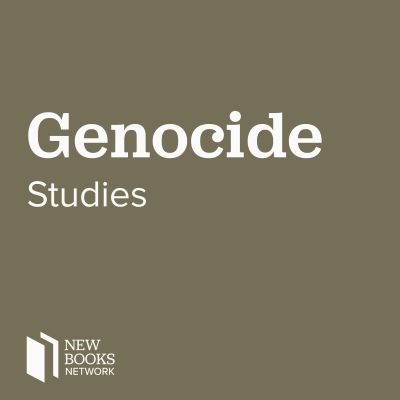Interviews with Scholars of Genocide about their New Books Support our show by becoming a premium member! https://newbooksnetwork.supportingcast.fm/genocide-studies
https://newbooksnetwork.com/category/politics-society/genocide-studies/
Gesamtlänge aller Episoden: 22 days 5 hours 31 minutes
Brendan C. Lindsay, “Murder State: California’s Native American Genocide, 1846-1873” (University of Nebraska Press, 2012)
Brendan C. Lindsay‘s impressive if deeply troubling new book centers on two concepts long considered anathema: democracy and genocide. One is an ideal of self-government, the other history’s most unspeakable crime. Yet as Lindsay deftly describes,
Gina Chon and Sambeth Thet, “Behind the Killing Fields: A Khmer Rouge Leader and One of his Victims” (University of Pennsylvania Press, 2010)
I’m not sure what it would feel like to interview a leader of a genocidal regime. Asking why people decide it is right and necessary to kill many thousands is one of the standard questions in genocide studies.
Timothy Snyder, “Bloodlands: Europe Between Hitler and Stalin” (Basic Books, 2011)
Neville Chamberlain described Czechoslovakia as a far away land we know little about. He could have said it about any of the countries of east-central Europe. Yet, for the Soviet Union and Nazi Germany east-central Europe,
episode 165: Keith Pomakoy, "Helping Humanity: American Policy and Genocide Rescue" (Lexington Books, 2011)
An interview with Keith Pomakoy
David Shneer, “Through Soviet Jewish Eyes: Photography, War, and the Holocaust” (Rutgers UP, 2010)
We should be skeptical of what is sometimes called “Jew counting” and all it implies. Yet it cannot be denied that Jews played a pivotal and (dare we say) disproportionate role in moving the West from a pre-modern to a modern condition.
Hans Kundnani, “Utopia or Auschwitz: Germany’s 1968 Generation and the Holocaust” (Columbia UP, 2010)
It’s pretty common in American political discourse to call someone a “fascist.” Everyone knows, however, that this is just name-calling: supposed fascists are never really fascists–they are just people you don’t like very much.
Catherine Epstein, “Model Nazi: Arthur Greiser and the Occupation of Western Poland” (Oxford UP, 2010)
The term “totalitarian” is useful as it well describes the aspirations of polities such as Nazi Germany and the Soviet Union (at least under Stalin). Yet it can also be misleading, for it suggests that totalitarian ambitions were in fact achieved.
Norman Naimark, “Stalin’s Genocides” (Princeton UP, 2010)
Absolutely no one doubts that Stalin murdered millions of people in the 1920s, 1930s and 1940s. His ruthless campaign of “dekulakization,” his pitiless deportation of “unreliable” ethnic groups, his senseless starvation of Ukrainian peasants,
Hilary Earl, “The Nuremberg SS-Einsatzgruppen Trial, 1945-1958: Atrocity, Law, and History” (Cambridge UP, 2010)
Hitler caused the Holocaust, that much we know (no Hitler, no Holocaust). But did he directly order it and, if so, how and when? This is one of the many interesting questions posed by Hilary Earl in her outstanding new book The Nuremberg SS-Einsatzgrup...
Ben Kiernan, “Blood and Soil: A World History of Genocide and Extermination from Sparta to Darfur” (Yale UP, 2007)
Chimps, our closest relatives, kill each other. But chimps do not engage in anything close to mass slaughter of their own kind. Why is this? There are two possible explanations for the difference. The first is this: chimps are not programmed,
